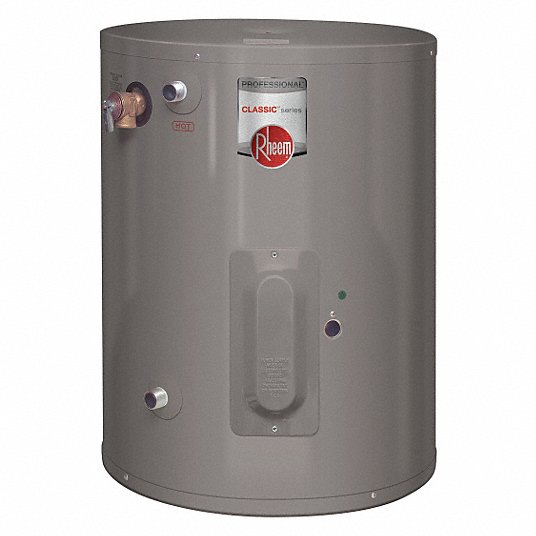Important Steps Residential Property Owners Should Take When Managing Broken Water Heaters
Important Steps Residential Property Owners Should Take When Managing Broken Water Heaters
Blog Article
What're your insights and beliefs about What Do You Do When Your Water Heater Bursts??

Whether it is located in the cellar or a separate room, broken water heaters can cause stress. A standard unit holds 80 gallons, so an over night leakage will result in a flood. This results in significant property damages with drenched walls as well as floors. Having no warm water supply is likewise troublesome. If you are managing these concerns, bear in mind of the following:
Call the Plumber
After doing the first two safety and security steps, you should call your plumber to come right away to fix a burst water heating unit. There are generally signs that your aging water heating unit has debris build-up in the inside.
Do not await major flooding to call the plumber. By then, you will need to spend even more to recover your property. Rather, as quickly as you spot these indicators, have a professional come to check your water heater container. Normally, water heaters have a life expectancy of concerning 8 to 12 years. With regular assessment and maintenance, you can lengthen its life.
Cut Off the Cold Water Supply
Cut off the containers touch water supply from the resource. When your tank is in good condition, the cold water stops filling up when the tank is full. If you can not find it or reach it, you should turn off that main water supply line outside your property.
Shut Off Source Of Power
Prior to calling the plumber, shut off a gas water heater by turning the temperature level dial. This will avoid electrocution, particularly if there is a leak as water is a conductor. Normally, the home heating component closes off when the water hits a particular temperature.
Clean Up Residential property
After calling the plumber, file damages by taking notes and images so you can declare your homeowner's insurance coverage. Remove any kind of standing water to avoid mold and mildew as well as mold growth. If you have a completely submersible water pump, use that to drain pipes the water.
Remember, if you observe any problems with your water heater, call the pros right away. You can not take this issue gently due to the fact that a faulty thermostat can raise water temp to a hazardously high level, resulting in unexpected burns. A broken heating system stress safety valve can likewise cause a surge. For best results, get a yearly check so your unit gets examined, cleaned up, drained pipes, as well as filled up, ensuring optimum efficiency.
After doing the initial two safety actions, you must call your plumber to come right away to take care of a ruptured water heating system. Instead, as soon as you find these indicators, have a specialist come to inspect your water heating unit container. Before calling the plumber, shut off a gas water heating system by turning the temperature dial. If you have a completely submersible water pump, make use of that to drain the water. Remember, if you discover any type of concerns with your water heater, call the pros right away.
5 Signs It’s Time to Replace Your Water Heater
Your Water Heater is too Old
Nothing lasts forever, least of all a water heater. During the course of an average home occupancy, a resident is bound to face that moment where they need to replace a water heater. Trouble is, most homeowners are unaware of when a water heater reaches its expiration date. Not knowing this, however, can lead to major risks when the heater starts acting up due to old age.
How Long Do Water Heaters Last
The majority of water heaters last between eight and ten years. While ten is the age at which heater replacement is generally recommended, the actual need to replace a heater could arise before or after this timeline. Whether or not a heater begins showing symptoms, you should replace it once a decade has passed from its manufacture date.
Rusty Water or Heater Inlet Valve
Even though steel is the strongest material on the face of the earth, it has a weakness: rust. When corrosion takes hold on a steel surface, it slowly spreads and eats through the steel in certain spots. On water pipes and tanks made of steel, rust serves as the warning sign for oncoming leaks.
Trouble is, it’s often hard to tell whether rust is coming from the water heater itself or the pipes that lead to your faucet. In any case, rust is an immediate problem that needs to be rectified for the sanitation of your household.
https://www.davidleroyplumbing.com/blog/5-signs-time-replace-water-heater/

We had been made aware of that write-up on Maintaining & Draining a Water Heater from a good friend on a different site. Enjoyed reading our blog? Please share it. Help someone else check it out. Many thanks for your time. Come back soon.
Excellence? Just call! Report this page